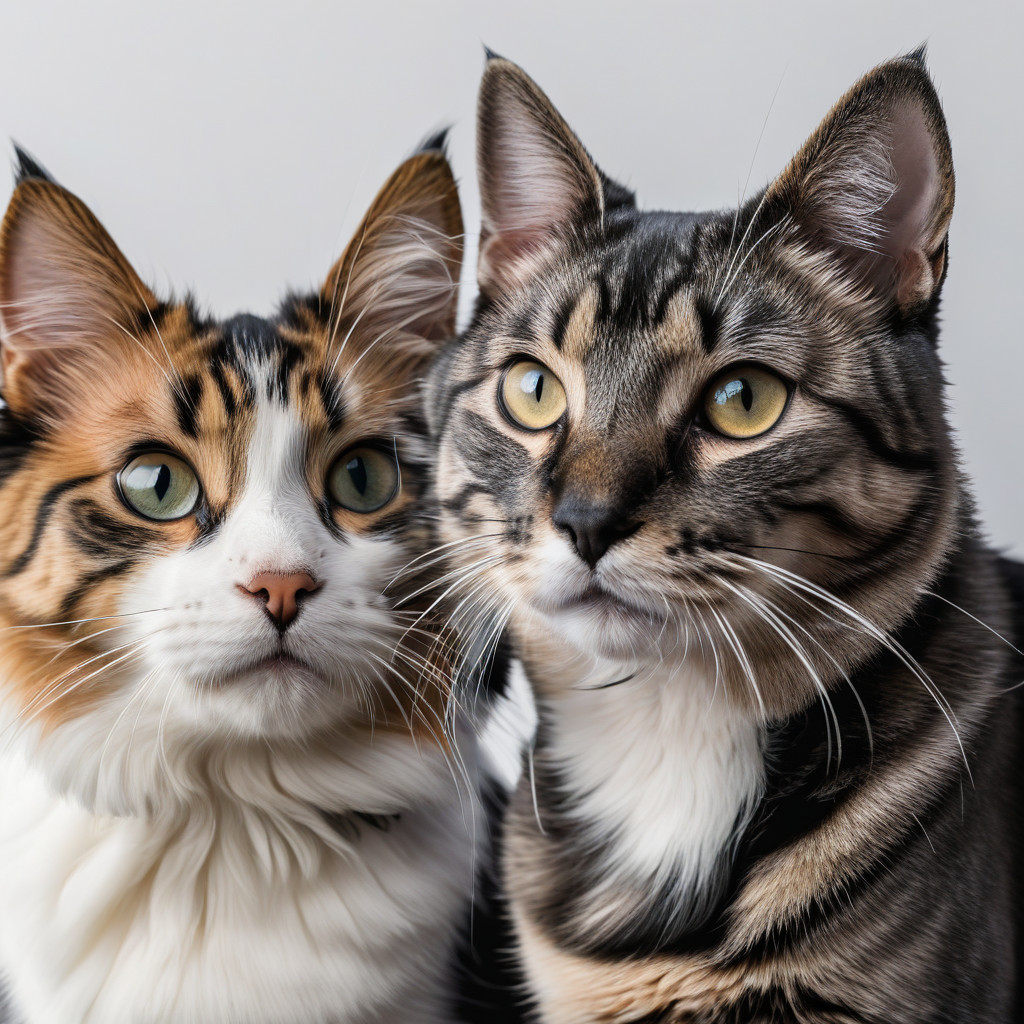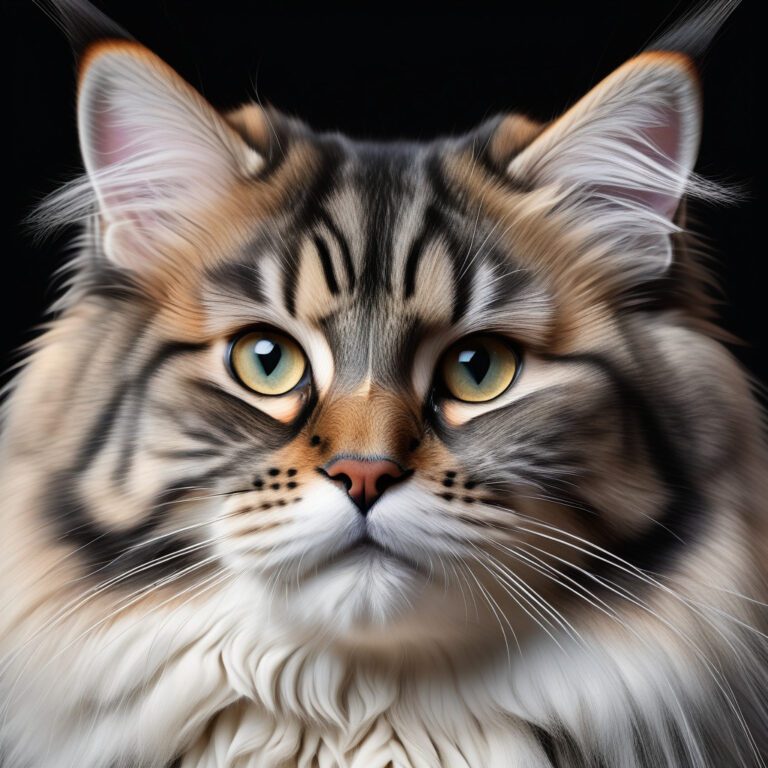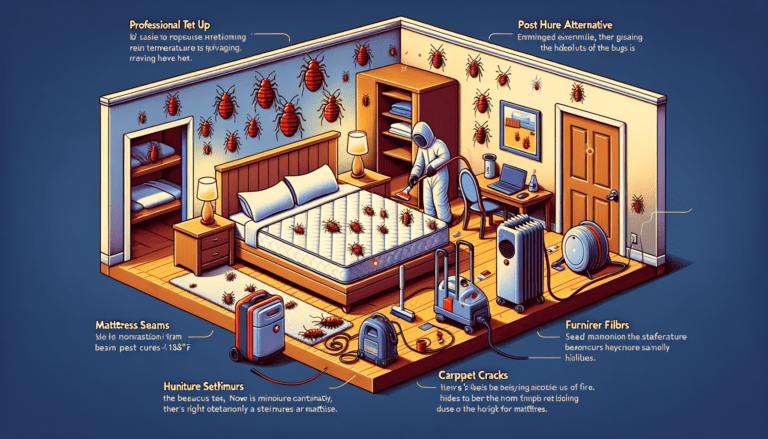Feline longevity is a fascinating topic that often leaves pet owners puzzled. Why do cats tend to outlive dogs by a significant margin? In this informative blog post, we explore into the various theories surrounding this phenomenon. From the lifestyle differences between cats and dogs to the impact of human intervention on dog breeds, we explore the factors that contribute to cats enjoying longer lives. Join us as we uncover the reasons behind feline longevity and shed light on why our feline friends tend to live longer than their canine counterparts.
Biological and Genetic Factors
To understand why cats tend to outlive dogs, we need to research into the biological and genetic factors that contribute to their longevity. These factors play a crucial role in determining the lifespan of our beloved feline companions.
Genetic Make-up and Vitality
One of the key reasons behind the longer lifespan of cats compared to dogs lies in their genetic make-up and vitality. Cats are genetically predisposed to be robust and resilient animals, with a strong immune system that helps them fight off infections and diseases more effectively than dogs. This genetic advantage contributes significantly to their overall longevity and well-being.

Cats also have a unique ability to adapt to various environmental conditions, thanks to their genetic diversity. This adaptability plays a vital role in their survival and contributes to their extended lifespan compared to dogs.
Size and Metabolic Rate
Genetic factors related to size and metabolic rate also play a crucial role in determining the lifespan of cats. Generally, cats are smaller in size compared to dogs, which can contribute to their longer lifespan. Smaller animals tend to have slower metabolic rates, which can result in slower aging and a reduced risk of age-related diseases.
Rate While dogs may vary significantly in size due to human intervention, with larger breeds often having shorter lifespans, cats have maintained a more consistent size range, which may contribute to their overall longevity.
Lifestyle and Behavioral Influences
Indoor vs. Outdoor Cats
Lifestyle plays a crucial role in the longevity of cats. Indoor cats tend to live longer than outdoor cats due to decreased exposure to risks such as traffic accidents, predators, and contagious diseases. They are also less likely to get into fights with other animals, reducing the chances of injuries or infections. Indoor cats typically have a more predictable and stable environment, with access to regular vet check-ups and balanced nutrition, all of which contribute to their overall well-being and longevity.
On the other hand, outdoor cats face numerous threats that can impact their lifespan. They are more susceptible to injuries, infections, and accidents. The average lifespan of outdoor cats can be significantly shorter, sometimes as low as 2 years due to these risks. Providing a safe and enriched outdoor environment can help mitigate some of these dangers, but the longevity of outdoor cats remains a concern compared to their indoor counterparts.
Social Structures and Stress Levels
To understand the impact of social structures on cat longevity, we must examine into their nature as solitary hunters. While cats are territorial animals that may establish social hierarchies with other felines, they do not rely on pack behavior like dogs. This independence can reduce stress levels in cats, as they do not have to navigate complex social relationships or conflicts. Lower stress levels have been linked to better health outcomes and increased longevity in various species, including cats.
Outdoor cats, in particular, may face higher levels of stress due to competition for resources, conflicts with other animals, and the lack of a stable territory. These stressors can have detrimental effects on their physical and mental well-being, potentially shortening their lifespan. By providing a secure and stimulating indoor environment, cat owners can help minimize stress and support their feline companions in living longer, healthier lives.
Health and Veterinary Care
Disease Resistance and Immune System Strength
Unlike dogs, cats are known for their strong disease resistance and robust immune systems. An inherent ability to fight off infections and illnesses plays a significant role in the longevity of cats. The feline immune system is finely tuned to combat various pathogens, keeping them healthier and less prone to falling seriously ill.
Cats also have specific genetic adaptations that contribute to their disease resistance. For example, they have a unique gene that makes them less susceptible to certain viruses, giving them an added layer of protection against common feline diseases.
Impact of Modern Veterinary Practices
Disease prevention and management through modern veterinary practices have also played a crucial role in extending the lifespan of cats. Regular vaccinations, preventive care measures, and advanced medical treatments have all contributed to keeping cats healthy and addressing health issues promptly.
With the advancements in veterinary medicine, veterinarians can diagnose and treat illnesses in cats more effectively, improving their quality of life and overall longevity. Access to specialized care and tailored treatment plans has helped ensure that cats receive the best possible medical attention to address their specific health needs.
To ensure the well-being and longevity of cats, it is vital to prioritize preventive care and regular veterinary check-ups. By staying proactive in managing their health, cat owners can help their feline companions live long, healthy lives. Implementing a comprehensive veterinary care routine tailored to the individual needs of each cat is key in fostering their longevity and well-being.
Human Intervention and Breeding Practices
Once again, the impact of human intervention and breeding practices cannot be overlooked when considering the differences in lifespan between cats and dogs. The selective breeding of both species over centuries has played a significant role in shaping their genetic makeup and overall health.
Historical Domestication and Breeding
Breeding practices have been a crucial factor in the domestication of cats and dogs. While dogs have been domesticated for thousands of years, cats have a more recent history of domestication, with some experts pointing to ancient Egypt as the starting point. Over time, humans have selectively bred both cats and dogs for various traits, leading to the creation of numerous breeds with distinct characteristics.
The Role of Selective Breeding in Lifespan
Breeding practices have not only influenced the physical appearance and behavior of feline longevity and dogs but also their overall health and lifespan. Through selective breeding, certain dog breeds have been developed with specific features, which unfortunately have led to health issues and decreased lifespan. On the other hand, most cat breeds have been relatively less altered through breeding, potentially contributing to their longer average lifespan compared to dogs.
Lifespan: According to data, on average, dogs live around 12 years, while cats can live into their late teens or even early 20s. This stark contrast in lifespan between the two species highlights the impact of selective breeding practices on their health and longevity.
Conclusion
Hence, despite the various theories proposed, the exact reason why cats tend to live longer than dogs remains a mystery. While factors such as solitary lifestyles, weaponry, human interference, and ancient history may play a role, none of them fully explain the 25% disparity in life expectancy between the two species. More research is needed to investigate deeper into this intriguing phenomenon and uncover the true secrets behind feline longevity.
FAQ
Q: Why do cats tend to live longer than dogs?
A: Cats generally live longer than dogs due to various factors such as their solitary nature, different defense mechanisms, possible human interference, and evolutionary history.
Q: Do cats live longer because they are solitary creatures?
A: Yes, the solitary nature of cats minimizes the risk of infectious diseases spreading among them, contributing to their longer lifespan compared to social pack animals like dogs.
Q: Could cats living longer be attributed to their defense mechanisms?
A: Cats possess both teeth and claws as defense mechanisms, which can keep potential threats at bay and potentially contribute to their longer lifespan by enabling them to fend off predators effectively.
Q: Is human intervention a possible reason why cats live longer than dogs?
A: Human interference in breeding practices, leading to various dog breeds with inherent health issues, might be a contributing factor to why cats live longer; however, this theory is not conclusive.
Q: What does the evolutionary history of cats and dogs reveal about their lifespan difference?
A: Cats’ historical superiority in hunting prowess and ability to outcompete dogs may have led to evolutionary advantages favoring their longevity, but the impact on modern-day lifespan is still debatable.
Q: Are larger animals supposed to live longer, and how does this apply to cats and dogs?
A: Generally, larger animals tend to live longer, but in the case of dogs, larger breeds actually have shorter lifespans than smaller breeds, indicating a unique trend influenced by human intervention and evolutionary factors.
Q: What remains unknown about the lifespan difference between cats and dogs?
A: The reasons why large dog breeds age faster and have shorter lifespans compared to smaller breeds are not fully understood, suggesting a complex interplay of genetic, environmental, and biological factors that require further research.





